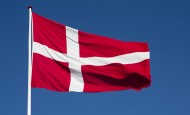Correspondance: Swedish Government Funding for Secretariat
On March 26, 2018, NGO Monitor sent an open letter to Swedish Minister for Foreign Affairs Margot Wallström regarding an “independent assessment” of the International Humanitarian Law and Human Rights Secretariat (Secretariat) completed in October 2017.
NGO Monitor noted the politicized contents of the assessment, faulty (or non-existent) methodology, and the authors’ blatant conflicts of interest.
In a response on April 2, 2018, an official from the Ministry for Foreign Affairs stated that in regards to the Secretariat, Sweden “finished its activities according to plan by the end of 2017… Sweden is now considering how to best support efforts to strengthen respect for human rights in the future.”
NGO Monitor Open Letter to Margot Wallström, Swedish Minister for Foreign Affairs, March 26, 2018
Date of Correspondence: March 26, 2018
Dear Foreign Minister: Ms. Margot Wallström,
CC: Minister of Development: Ms. Isabella Lövin,
Ambassador to Israel: Ambassador Carl Magnus Nesser
Subject: Swedish Government Funding for IHL Secretariat
We are writing regarding the “independent assessment” of the International Humanitarian Law and Human Rights Secretariat (Secretariat) completed in October 2017 and made public on February 6, 2018.1 In the course of detailed review and analysis, we note the politicized contents of the assessment, faulty (or non-existent) methodology, and the authors’ blatant conflicts of interest. Separately and together, these aspects highlight the major concerns as to the management and monitoring of the Secretariat as a funding mechanism for non-governmental organizations (NGOs). These problems are particularly urgent in the context of the recent withdrawal of Denmark2 and the Netherlands3 from the mechanism following or pending internal investigations, as well as some of the statements and activities of the Palestinian grantees. It is particularly concerning that the assessment makes no reference to blatant antisemitism promoted by some of Secretariat’s grantees and/or their glorification of terror.
We wish to bring these issues, detailed in the appendix to this letter, to your attention, and await your response and comments.
In this context, we would also ask whether your government is continuing funding through the Secretariat.
We would appreciate your response no later than Thursday, April 12, 2018.
Respectfully,
Prof. Gerald M. Steinberg Olga Deutsch
President Director NGO Monitor Europe Desk
Appendix: Serious Concerns in the Internal Review
As detailed in the Terms of Reference, “it was decided to assess the currently core funded CSOs [Civil Society Organizations]” – 24 Israeli and Palestinian organizations in total – in reference to the “institution and management capacities,” and the “Strategic Plan/Orientation” of the organizations (Annex 1, p. 22).
In violation of conflict of interest norms and of minimal ethical standards, two of the three experts commissioned to conduct the assessment are political activists affiliated with many of the grantees and their partners.
Halla Shoaibi and Fateh Azzam both work as policy advisers for the NGO Al-Shabaka, which in 2016-2017 collaborated with three of the assessed grantees – Jerusalem Legal Aid Center (JLAC), Al-Haq and BADIL – on joint project, “Jerusalem: A City for All?”4 Azzam also serves as an advisor for Visualizing Palestine, which led the initiative.5 In all likelihood, the collaboration was ongoing at the time of assessment, which commenced in August 2017. The project comprised of “Six Palestinian civil society organizations… [that] collaborated with Visualizing Palestine to create a series of visuals on the situation in East Jerusalem… [aimed] at raising awareness of Israel’s apartheid policies in the city…” (emphasis added).
Undermining the assessment’s credibility further, the grantees were assessed based almost entirely on self-reporting. As asserted by the authors, “The Team had before it information in the public domain, replies to the questionnaire sent by the Team [filled by the organizations], documents submitted by the organisations and information shared in the course of meetings with the organisations” (p. 7). While the assessment is descriptive of some of the recipient NGOs’ organizational structure, “strategic plans,” and activities, no conclusions are drawn as to their ultimate impact.
Unsurprisingly, the only conclusion made in the assessment is that support to the grantees ought to be increased (p. 21). The authors cite concerns regarding “shrinking financial support,” the alleged result of “excessive restriction in flow of funding and resources through new regulations, threats, physical and via internet, control of communication, and abusive use of social media” (p. 17-18). These are not specified, nor are any examples given of organizations that have not been able to receive funding from willing donors.
Finally, the assessment dismisses “criticism levied against the CSOs for ‘politicization’ of human rights work,” arguing “that the work of human rights defenders is often characterized as political in an effort to undermine its legitimacy” (p. 19). The authors omit evidence of incitement, promotion of antisemitism, and glorification of terrorism on the part of grantees, which has in some cases led to the termination of funding – as was the case with the Women Affairs Technical Committee after it inaugurated a youth center named after a terrorist, Dalal Mughrabi.6
In this context, it is important to note that 11 of the 15 Palestinian core grantees of the Secretariat are members of the Palestinian NGO Network, an organization that has openly condemned Norway for defunding the aforementioned youth center, calling Mughrabi a “freedom fighter.” Following the publication of an op-ed on the subject by NGO Monitor Europe Desk Director Olga Deutsch, PNGO removed the statement from its website.7 An archived version is available.8
In the attempt to justify the grantees’ activities as non-political, the assessment devotes considerable effort to portray the “Boycott, Divestment and Sanctions Movement (BDS)” as an “integral component of the resistance to the military occupation ”that “does not constitute a political activity” (p. 18) – a remarkably bold assertion, considering all of the Secretariat’s donor countries have expressed their opposition to funding the movement.9
In fact, an entire annex is dedicated to “A Human Rights Lens on the Boycott Divestment and Sanctions Movement” (p. 25-27), adapted from a lecture given by Azzam at Occidental College, Los-Angeles, in November 2016.10 According to the annex (emphases added),
BDS aims to bring pressure to bear to:
- End the Israeli military occupation of Palestine and violation of Palestinian rights;
- Ensure that Palestinian refugees are able to exercise their right to return to their homeland;
- End the apartheid-like discrimination against Palestinian citizens of Israel.
The annex concludes that “involvement in BDS is not only a right, but also a responsibility of active citizenship,” as well as “one of the few avenues that are open to civil society actors” in order to protect “human rights and fundamental freedoms” (p. 27, emphases added). These outrageous claims are further evidence of the unsuitability and non-independent nature of the reviewers.
Swedish Response, April 2, 2018
Date of Correspondence: April 2 2018,
Dear Prof. Steinberg and Ms. Deutsch,
Thank you for your email to Minister for Foreign Affairs Margot Wallström.
Regarding Sweden’s support to the IHL/Human rights secretariat: This was a program for supporting human rights organizations where four donors collaborated (Sweden, Switzerland, the Netherlands and Denmark) and which finished its activities according to plan by the end of 2017. All four donors have been part of the program until its end. Currently and until the end of June, the last administrative work is being finished by the secretariat. Sweden is now considering how to best support efforts to strengthen respect for human rights in the future.
Sincerely,
Linnaea Manberger
Desk Officer
Ministry for Foreign Affairs
Footnotes
- https://www.rightsecretariat.ps/component/content/article/81-news/publications/298-independent_assessment_2017
- http://um.dk/da/nyheder-fra-udenrigsministeriet/NewsDisplayPage/?newsID=957947BD-A1A0-4AAA-B66A-50B5F89530F2
- https://www.tweedekamer.nl/kamerstukken/kamervragen/detail?id=2018D00595&did=2018D00595
- https://al-shabaka.org/profiles/halla-shoaibi/; https://al-shabaka.org/profiles/fateh-azzam/; https://al-shabaka.org/releases/jerusalem-a-city-for-all/
- https://visualizingpalestine.org/vp-board?team=current_advisor&member_id=15#about
- https://www.ngo-monitor.org/denmark-orders-freeze-secretariat-funding/
- http://eptoday.com/how-intl-aid-is-shrinking-civil-space-case-of-the-palestinian-ngo-network/
- http://www.pngo.net/pngo-condemns-norway-demanding-pa-return-funds-for-center-named-after-dalal-mughrabi. An archived version is also available at https://web.archive.org/web/20170706100619/http://www.pngo.net/pngo-condemns-norway-demanding-pa-return-funds-for-center-named-after-dalal-mughrabi/
- https://www.i24news.tv/en/news/israel/diplomacy-defense/124710-160906-noted-israel-critic-swedish-fm-declares-opposition-to-bds-movement; https://www.blick.ch/news/schweiz/entwicklungshilfe-schweiz-soll-keine-hetzerischen-organisationen-unterstuetzen-id6827062.html; https://udfordringen.dk/2017/05/hjerteligt-moede-mellem-dansk-udenrigsminister-israels-ledere/; https://www.timesofisrael.com/liveblog_entry/in-israel-dutch-foreign-minister-vows-to-fight-bds-anti-semitism/
- https://www.facebook.com/photo.php?fbid=1200913266636657&set=o.221448654583904&type=3&theater




